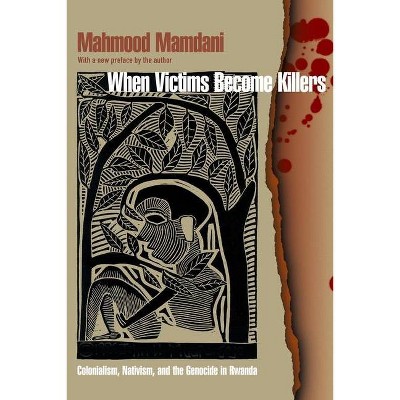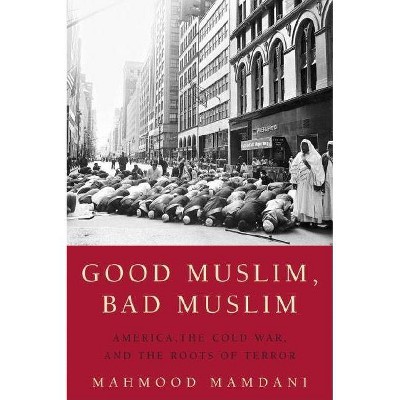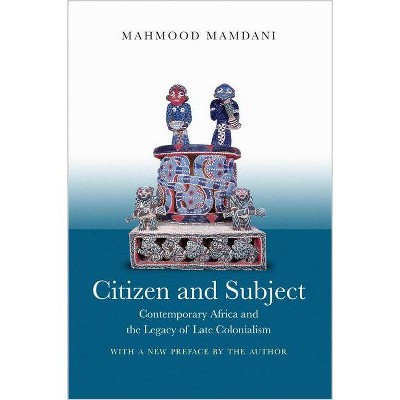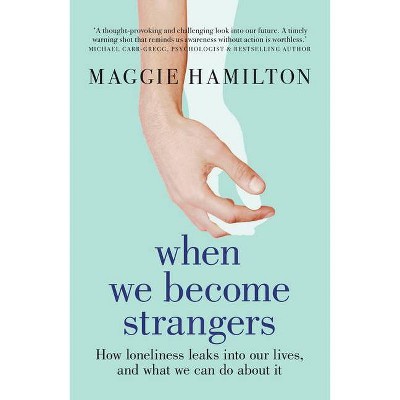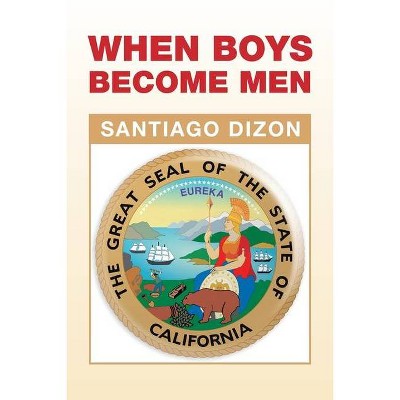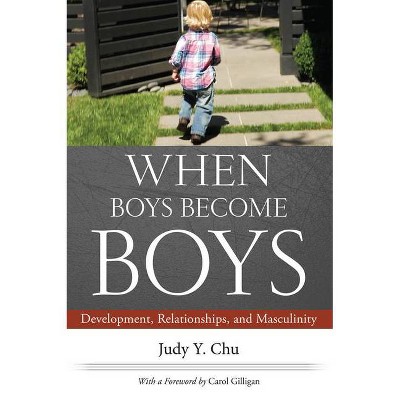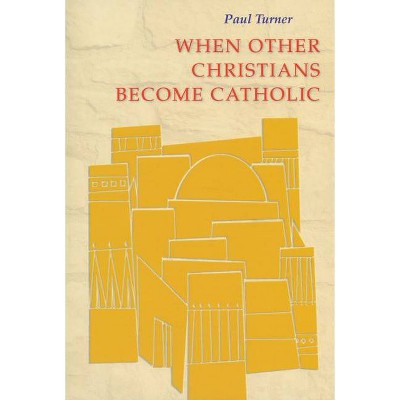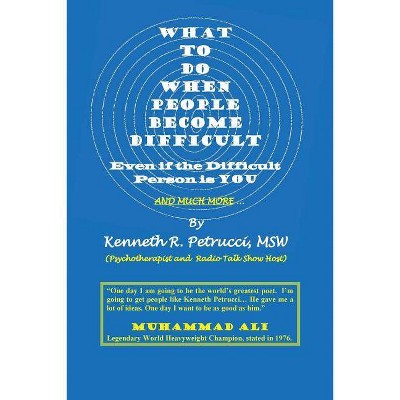When Victims Become Killers - by Mahmood Mamdani (Paperback)
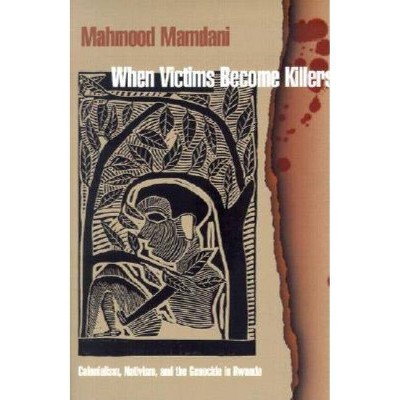
Similar Products
Products of same category from the store
AllProduct info
<p/><br></br><p><b> Book Synopsis </b></p></br></br><p>When we captured Kigali, we thought we would face criminals in the state; instead, we faced a criminal population. So a political commissar in the Rwanda Patriotic Front reflected after the 1994 massacre of as many as one million Tutsis in Rwanda. Underlying his statement is the realization that, though ordered by a minority of state functionaries, the slaughter was performed by hundreds of thousands of ordinary citizens, including even judges, human rights activists, and doctors, nurses, priests, friends, and spouses of the victims. Indeed, it is its very popularity that makes the Rwandan genocide so unthinkable. This book makes it thinkable. <p/> Rejecting easy explanations of the genocide as a mysterious evil force that was bizarrely unleashed, one of Africa's best-known intellectuals situates the tragedy in its proper context. He coaxes to the surface the historical, geographical, and political forces that made it possible for so many Hutu to turn so brutally on their neighbors. He finds answers in the nature of political identities generated during colonialism, in the failures of the nationalist revolution to transcend these identities, and in regional demographic and political currents that reach well beyond Rwanda. In so doing, Mahmood Mamdani usefully broadens understandings of citizenship and political identity in postcolonial Africa. <p/> There have been few attempts to explain the Rwandan horror, and none has succeeded so well as this one. Mamdani's analysis provides a solid foundation for future studies of the massacre. Even more important, his answers point a way out of crisis: a direction for reforming political identity in central Africa and preventing future tragedies.</p><p/><br></br><p><b> From the Back Cover </b></p></br></br><p>"This well written and strongly argued book qualifies Mahmood Mamdani as one of the most articulate, original, and stimulating African social scientists. His interpretation of the Rwandan genocide crisis will cause considerable controversy and will prove a fresh turning point in the process of 'de-inventing' Africa."<b>--Mamadou Diouf</b></p><p>"This is a very impressive piece of work--a scholar's attempt to move beyond the clichés of horror towards a genuine understanding of the social dynamics which made horror possible. It's a good example of relevant, committed, and passionate scholarship."<b>--Michael Ignatieff</b></p><p>"Daring, knowledgeable, and wise, Mahmood Mamdani places the terrible massacres of 1994 in historical, regional, theoretical, and moral perspective. His analysis of Hutu and Tutsi as historically grounded and incessantly changing political identities not only clarifies struggles of the 1990s in Rwanda, Burundi, Uganda, and Congo but also helps identify ways of preventing future bloodshed."<b>--Charles Tilly</b></p><p>"Mamdani's central argument is coherent, consistent, and compelling, and his account of the Rwandan crisis is riveting from beginning to end. It is also rendered with eloquence, generosity of spirit, and political shrewdness. His uncanny ability to use scholarly methods to cast light on public life is admirable and a model for the rest of us."<b>--Carlos Forment</b></p><p/><br></br><p><b> Review Quotes </b></p></br></br><br>[A] brilliant study of political identity and violence.<b>---Elisa von Joeden-Forgey, <i>H-Net Reviews</i></b><br><br>Few are better qualified to explain the tensions of post-colonial Africa than Mahmood Mamdani, a Ugandan political scientist with a sharp perspective on the colonially inspired differences between 'subject races'. His Rwandan case-study provides powerful evidence that the Tutsis came to be crushed between colonist and native.<b>---Richard Synge, <i>The Independent</i></b><br><br>[Mamdani's] analysis of Rwandese society, in particular the role of the church in the genocide, is fascinating. . . . Mamdani believes that the tens of thousands of killers who wielded the machetes that murdered 800,000 people in three terrible months of 1994 saw themselves as victims who feared losing out in the struggle for power.<b>---Victoria Brittain, <i>The Guardian</i></b><br><br>A genuinely original contribution to understanding the Rwandan catastrophe.-- "Dissent"<br><br>A welcome, powerful, and clear-sighted addition to this literature. . . . <i>When Victims Become Killers</i> represents a great achievement. It is a passionate and strongly argued work, memorable both as scholarship and as a brilliant political polemic.-- "Journal of Colonialism and Colonial History"<br><br>Mr Mamdani's political settlement is not democracy, which would simply restore the majority Hutus to power, but an acceptance of the Hutu and Tutsi with political, not cultural or class affiliations. He recommends a broad-based constitutional settlement that includes everyone prepared to give up violence whatever their ideology.-- "The Economist"<br><br>Nuanced and ground-breaking . . . a book that, unlike any of its kind, holistically encompasses all the underlying factors of the 1994 Rwandan genocide. [It] would be useful to anyone who is interested in not only knowing more about Rwandan history, but also how such a tragedy could occur in the modern era.-- "African Studies Quarterly"<br><br>The strengths of the book are clear and admirable. First, it provides what might be called an intellectual history of the Hutu-Tutsi division that is invaluable. . . . Anyone from now on who writes on identity in Central Africa--and there will be many--will have to wrestle with the case that Mamdani has made.<b>---Jeffrey Herbst, <i>Foreign Affairs</i></b><br><br>This book is a must-read. In terms of historical research and analytical depth, When Victims Become Killers is an invaluable academic work. . . . [Mamdani's] arguments are compelling even to those who may wish to disagree with him.-- "Monitor"<br><p/><br></br><p><b> About the Author </b></p></br></br><b>Mahmood Mamdani</b> is Herbert Lehman Professor of Government and Director of the Institute of African Studies at Columbia University. He is the author of <i>Citizen and Subject: Contemporary Africa and the Legacy of Late Colonialism</i> (Princeton), which won the Herskovitz prize of the African Studies Association. Among his other books are <i>The Myth of Population Control, From Citizen to Refugee</i>, and <i>Politics and Class Formation in Uganda</i>. He is currently President of the Dakar-based Council for Development of Social Research in Africa (CODESRIA).
Price History
Price Archive shows prices from various stores, lets you see history and find the cheapest. There is no actual sale on the website. For all support, inquiry and suggestion messagescommunication@pricearchive.us
